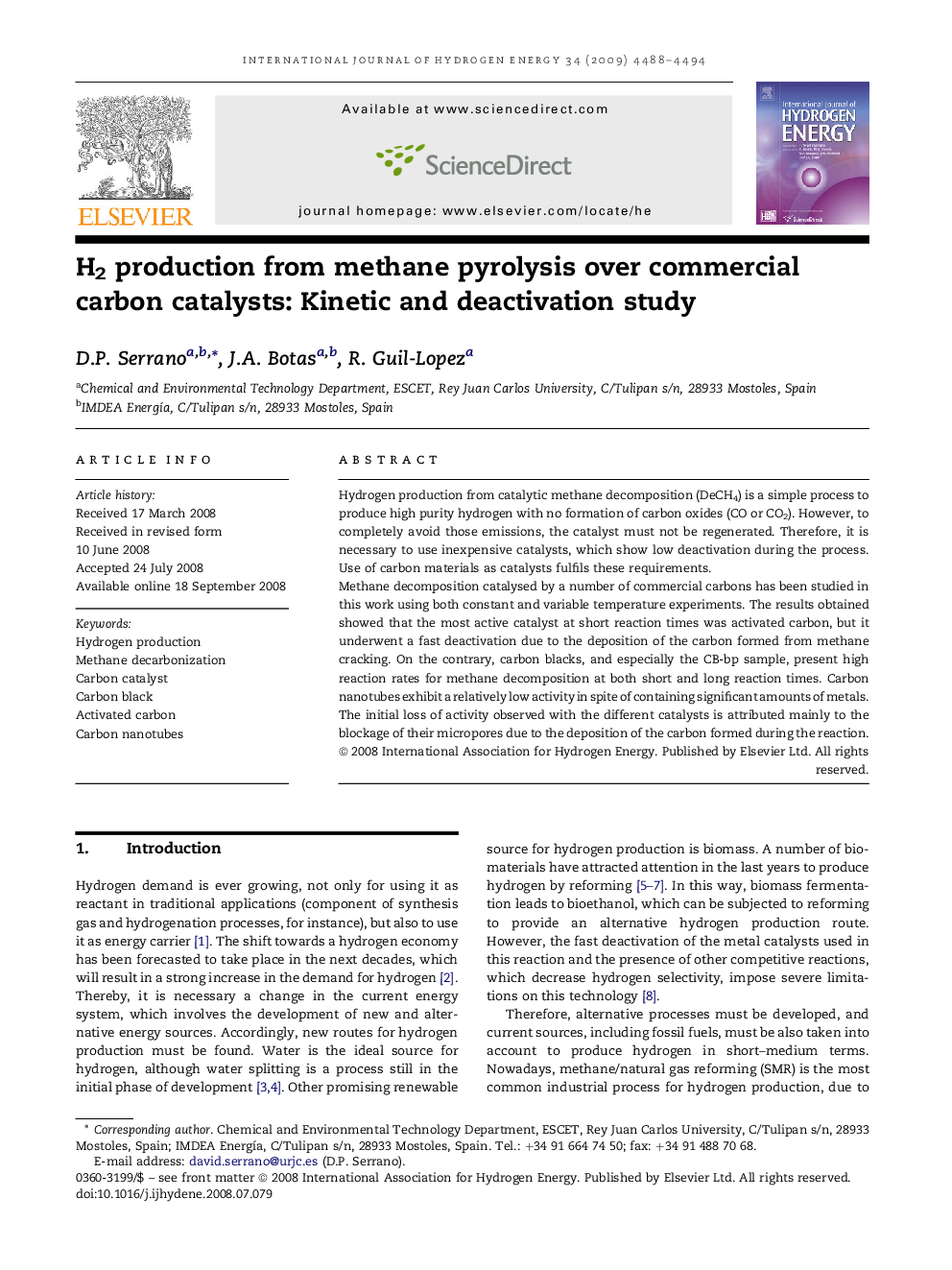| Article ID | Journal | Published Year | Pages | File Type |
|---|---|---|---|---|
| 1273860 | International Journal of Hydrogen Energy | 2009 | 7 Pages |
Hydrogen production from catalytic methane decomposition (DeCH4) is a simple process to produce high purity hydrogen with no formation of carbon oxides (CO or CO2). However, to completely avoid those emissions, the catalyst must not be regenerated. Therefore, it is necessary to use inexpensive catalysts, which show low deactivation during the process. Use of carbon materials as catalysts fulfils these requirements.Methane decomposition catalysed by a number of commercial carbons has been studied in this work using both constant and variable temperature experiments. The results obtained showed that the most active catalyst at short reaction times was activated carbon, but it underwent a fast deactivation due to the deposition of the carbon formed from methane cracking. On the contrary, carbon blacks, and especially the CB-bp sample, present high reaction rates for methane decomposition at both short and long reaction times. Carbon nanotubes exhibit a relatively low activity in spite of containing significant amounts of metals. The initial loss of activity observed with the different catalysts is attributed mainly to the blockage of their micropores due to the deposition of the carbon formed during the reaction.
